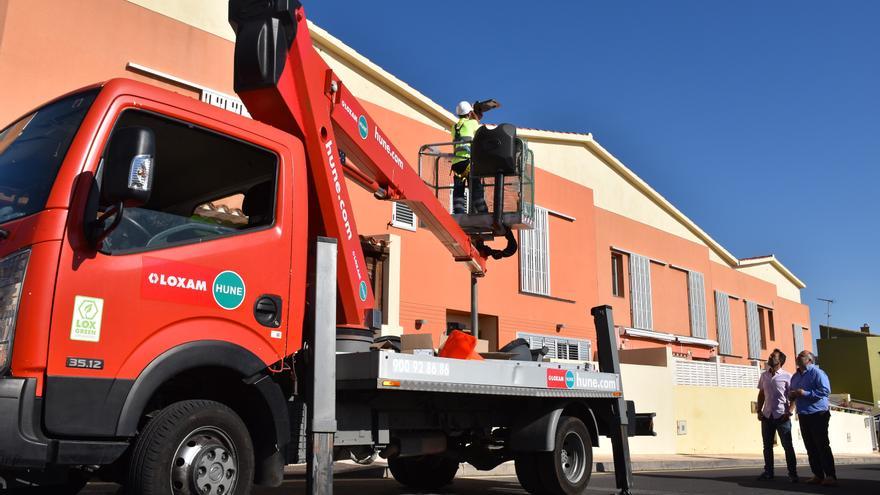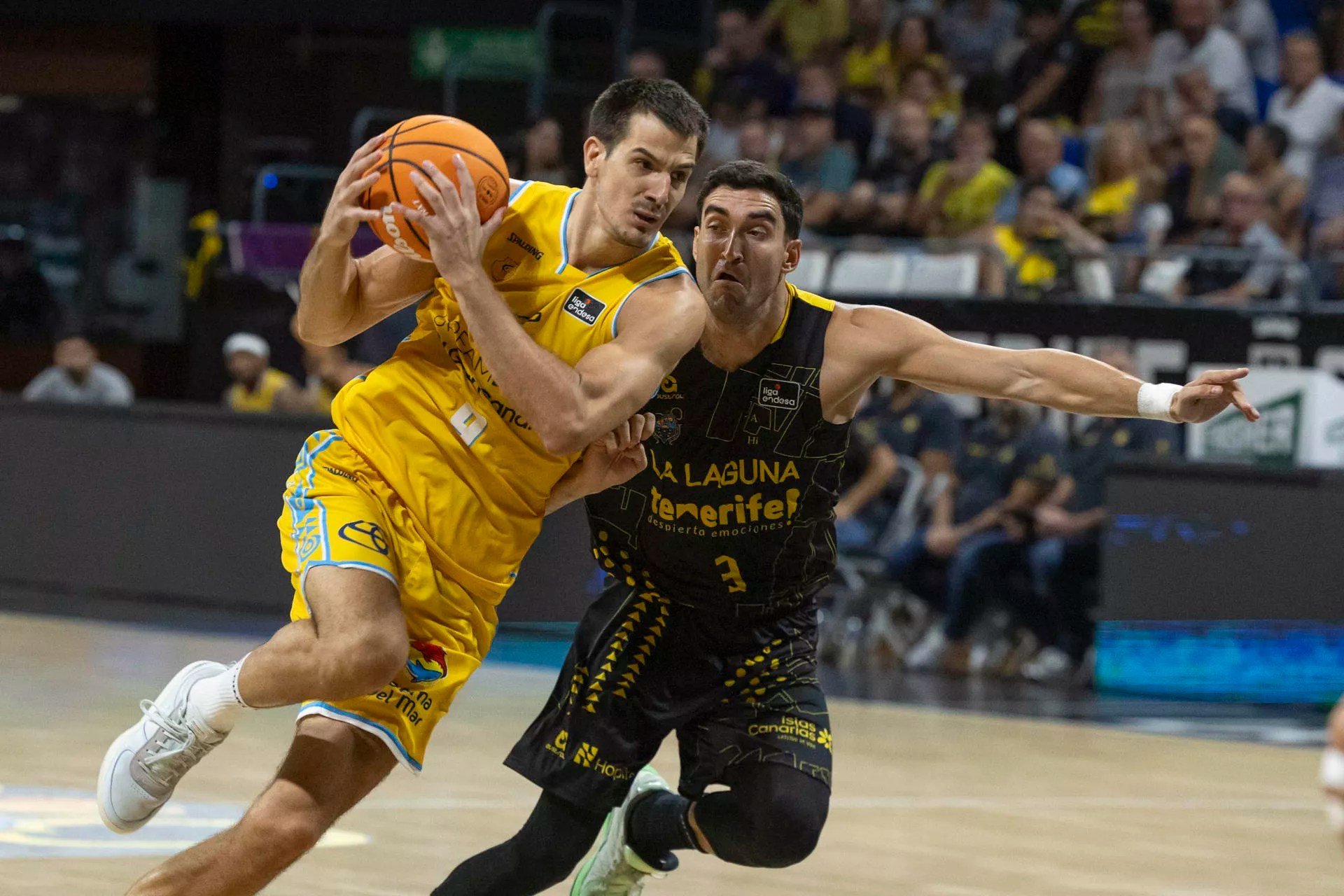
The Town Hall of The rosary has begun executing the replacement of a total of 1,534 public lighting fixtures with LED technology, also renewing 31 public lighting boxes. With this measure, which benefits 46% of all light points present in the municipality, current electricity consumption will be reduced by 71% Y 250 tons will stop being emitted carbon dioxide equivalents per year. This action has a total investment of 1.3 million euros, of which 85% comes from a subsidy awarded by the Institute for Energy Diversification and Saving (IDAE) of the Ministry of Ecological Transition.
The mayor of El Rosario, Escolástico Gil, and the Councilor for Ecological Transition, Fidel Vázquez, They recently verified the development of the works that will continue during the next months. The mayor stressed that “this important action is a new large-scale sustainable project to consolidate our commitment to saving electricity consumption and reducing greenhouse gas emissions, which comes in addition to other projects such as the installation of solar panels in municipal buildings or the execution of the envelope of the El Rosario City Hall building to make it more sustainable and make it the first municipal building with zero emissions”.
For his part, the mayor of Ecological Transition, Fidel Vázquez, maintains that “the improvements in public lighting and the implementation of a new remote management system by panel will be able to provide a complete solution for energy saving and network control at the level of command center, with various advantages such as fault monitoring, reading and control of the energy consumed, on-off control or light flux reduction control.
This new remote management system has alarms for incidents, real-time control and immediate response to unfavorable traffic or weather conditions, which would mean quite considerable cost savings”, according to the City Council in a note.
This action benefits from an investment of the aforementioned 1.3 million euros, of which 85% is executed from a subsidy granted by the Institute for Energy Diversification and Saving (IDAE), dependent on the Ministry of Ecological Transition, and the remaining 15% comes from the City Council’s own funds.
















